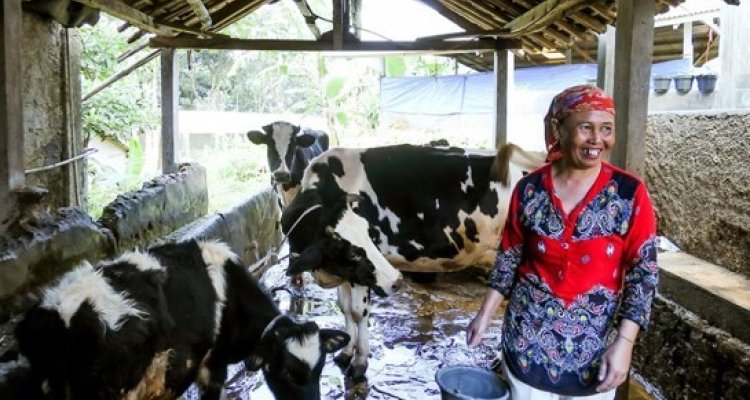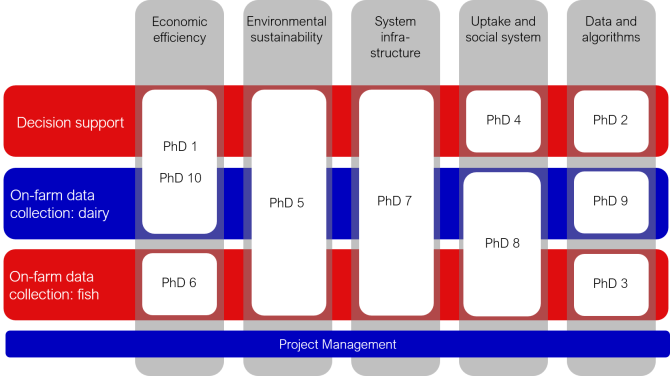
Project
Smart Indonesian Agriculture
Smart-In-Ag (short for Smart Indonesian Agriculture) is a joint research program between Wageningen University and Research and IPB University in Indonesia, together with State Agriculture Polytechnic in Kupang, and several industrial partners: Single Spark, e-Fishery, WorldFish, and Dairy Pro Indonesia. It is funded by INREF and LPDP. Additionally, project partners add to the funding by in-kind contributions.
Given the economic uprising and increase in population, the competition for land is fierce. Therefore, simply expanding dairy and fish production is not an option. The central question in our project is therefore: can we improve efficiency, animal welfare and environmental impact of dairy and fish production by making better use of SMART farming technologies?
Smart-In-Ag aims to introduce and expand novel SMART farming technologies in Indonesian agriculture, more specifically fish and dairy production.
Smart-In-Ag will work on this objective through 5 important steps:
1. SMART farming technologies such as sensors, information and communication technologies (ICT) systems, global position systems (GPS), internet of things (IoT), management information systems (MIS) and cloud computing will be combined to collect, store and analyse data from fish and dairy farms in Indonesia.
2. Information on the health of the animals, on the production parameters, the current management practices and potential risk factors will be collected at the farm for a longer period of time.
3. Using the collected information, software (apps) that can be used by farmers to support their daily farming routines will be tested at the farm. For example, a deep learning algorithm is trained from pictures taken on dairy farms, to be able to get a diagnosis or treatment plan for a sick cow from a distance, based on that picture. Dynamics between weather, water quality and feeding regimes will be studied, so that feeding regimes can maximize pond and fish health based on water quality and weather data.
4. Uptake of innovations is crucial for long term effectiveness. Therefore, together with farmers and other stakeholders the usability and (dis)advantages of implementing technologies will be explored.
5. Economic benefits of improved health and ecology, including a trend towards the future, will be made visible using bio-economic models. The impact on the environment will be analysed. This can support long term development of policies in Indonesia.
The project is structured as follows: three topic lines (decision support, dairy data collection, and fish data collection) are combined with five disciplines (economic efficiency, environmental sustainability, system infrastructure, uptake & social system, data & algorithms). Nine PhD students are executing the work and are supervised by researchers from Wageningen University and IPB University.
For more information on regarding the project and the description of the PhD projects, please visit the Smart-In-Ag website at: https://smart-in-ag.com.
